Through Their Eyes: COVID-19 Chronicles with Margaret Mbone
This is the first story from a new series by The Water Project meant to highlight the perspectives and experiences of the people we serve and how they are being impacted by the COVID-19 pandemic.
A lot has changed for Margaret Mbone since the beginning of the coronavirus outbreak in her home of Sichinji, Kenya. A 59-year-old farmer, mother, and wife, Margaret recently met us at her home (while observing social distancing) to share her story.
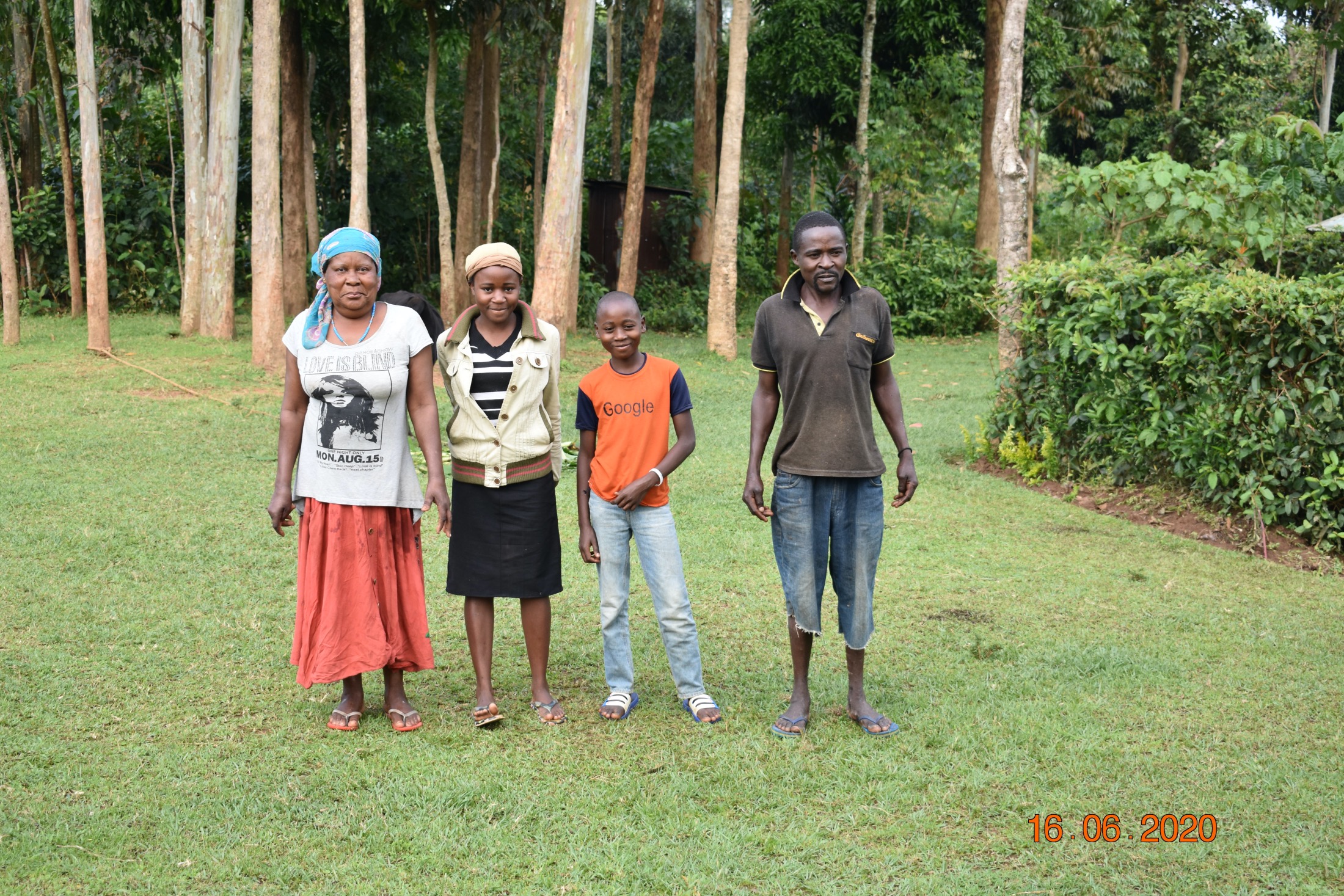
Margaret Mbone (left) with 3 of her children outside their home
We were happy to meet Margaret at home, because she was actually supposed to have gone to join a burial the day we came. But, she canceled her plans to attend since the previous day, the security at the burial homestead had cautioned community members that no one would be allowed to attend.
This decision came after the burial homestead had slaughtered a cow with the intent of cooking meals for guests. This was against the rules, because during the pandemic there is to be no feeding during the ceremony to avoid the spread of the virus.
And so Margaret, like so many of us, was at home. Margaret’s home community of Sichinji has no reported cases of COVID-19 to date. We observed mask-wearing in the community and also handwashing stations with soap set up at residents’ homes. These observations encouraged us because it meant people are taking precautions and prevention steps seriously, including those covered in our recent training here.
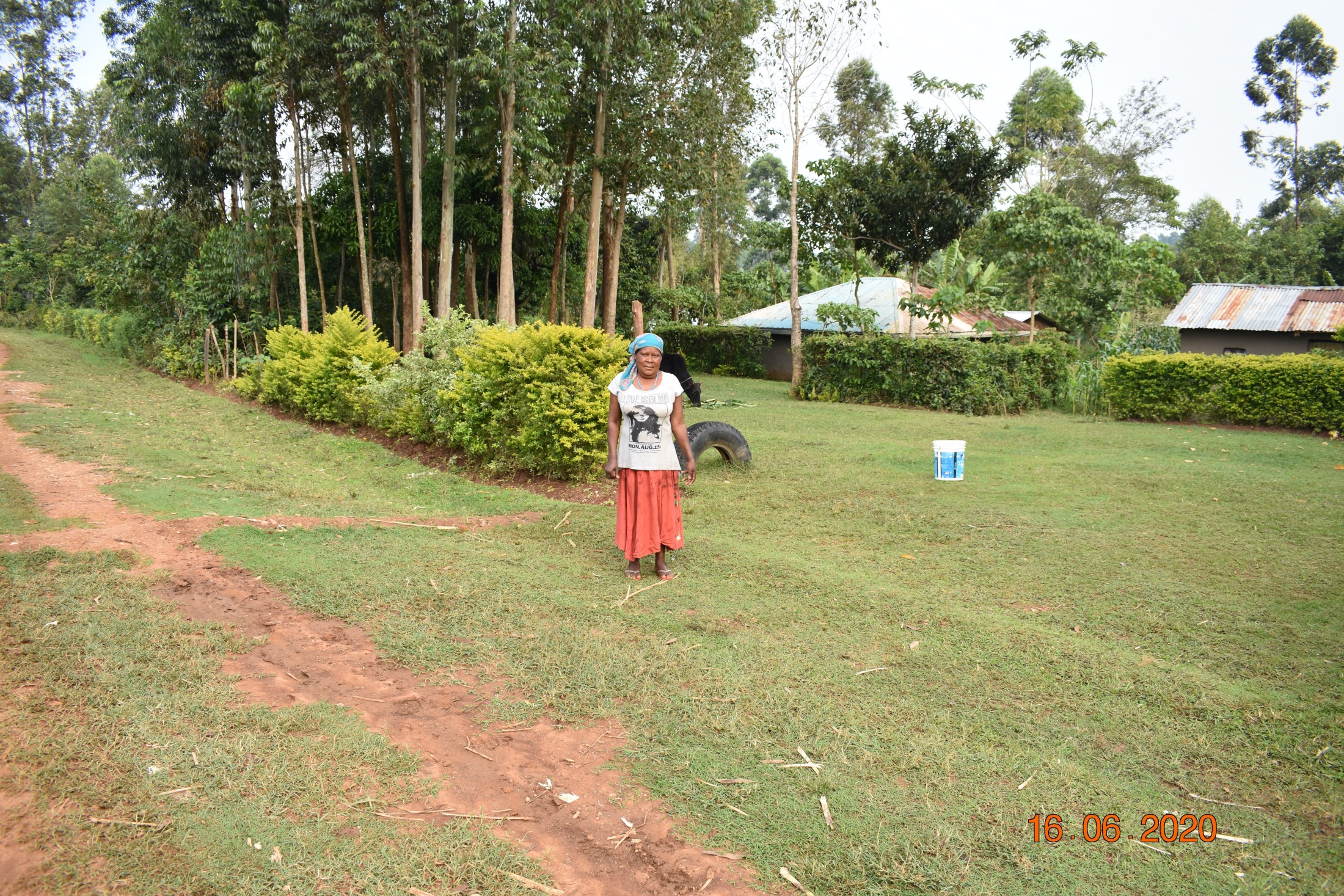
Margaret stands at the entrance to her homestead, visible to the right
Margaret depends on Kubai Spring as her daily source of clean water, which we helped protect last year. The timing could not have been better, according to Margaret.
“Before the water point installation, we used to suffer – especially the children – from water-related diseases such as typhoid, amoeba, and stomach pains. But since protection, the water is clean and safe.”
Since the pandemic requires Margaret and her family to wash their hands frequently, they can access clean water from the spring to wash hands as many times as possible. Margaret is very happy that, all things considered, the pandemic could not have come at a better time since the water she is using to help protect herself and her family from the virus is safe.
Other things at the spring and at home, however, have changed.
“Due to the curfew hours, it means I have to fetch water earlier and observe social distancing at the water point. No more meeting at the water point to catch up on affairs because crowds are not allowed. Now I have to wash my hands at the water point before fetching water. We were afraid that the virus would affect the water, but we were told it does not affect water at the drawing point.”
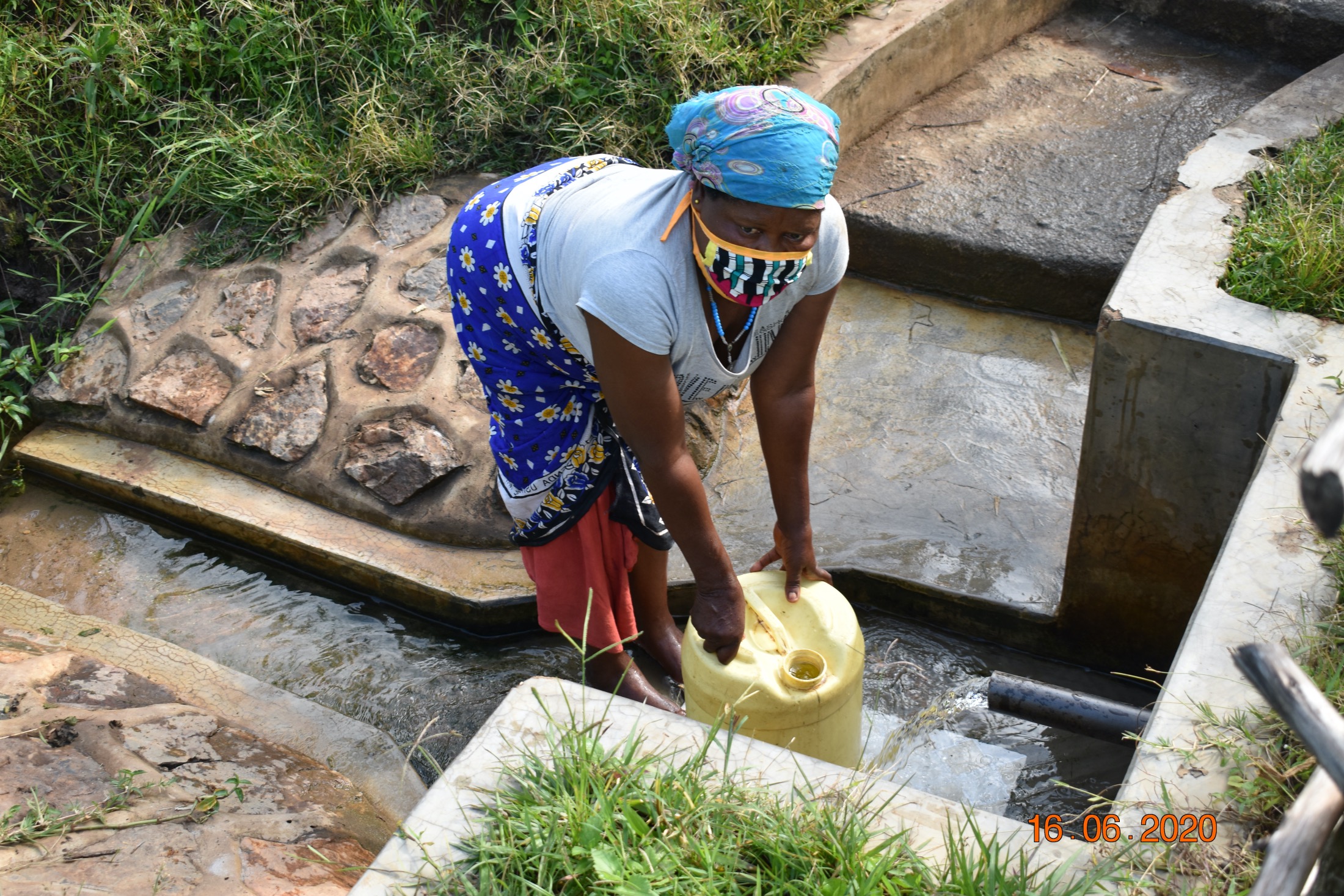
Margaret fetches water from Kubai Spring
Before the pandemic, Margaret’s husband and other children used to visit her from Mombasa and Nairobi more frequently. But since the lockdown was enforced in those cities, they can no longer leave to see Margaret. Her husband and working children are no longer employed due to the shutdown and consequent widespread job losses, so they cannot assist Margaret financially. Her husband used to send money home from his work, but now there is nothing to send and no sense of when he will have it next.
“There’s no work at the moment, so we just stay at home,” said Margaret.
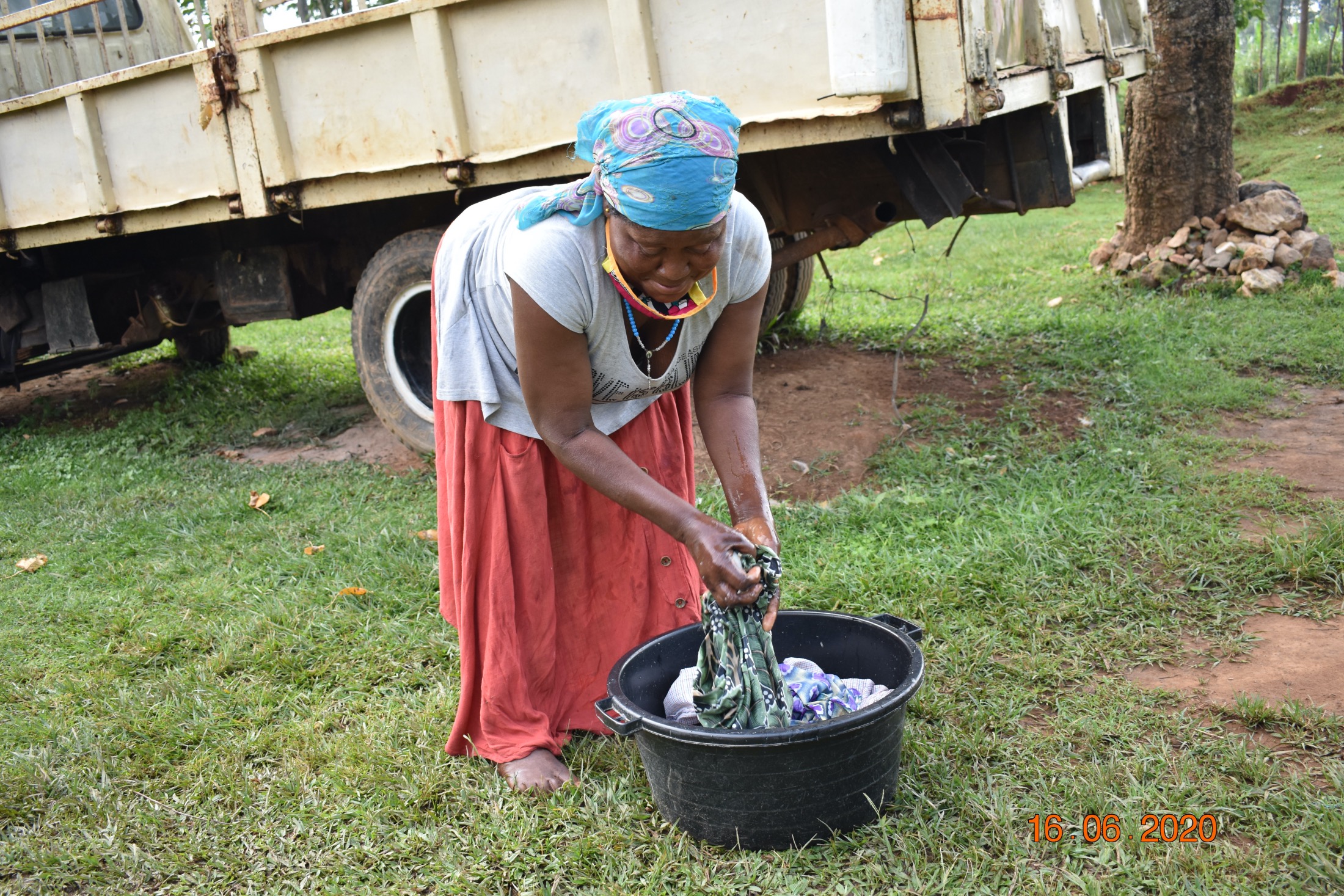
Margaret does her laundry using water from Kubai Spring
Knowing her husband and children are stuck in a lockdown affects Margaret emotionally, she said, because she fears for their safety and wellbeing. Other ways that Margaret would usually connect with friends and her support network have been lost temporarily due to the restrictions, heightening her social stress.
Without church gatherings, Margaret said she feels spiritually malnourished. She is missing the fellowship that comes with the weekly service. Social gatherings were banned, hence women “cannot meet as women to help one another, especially at such a time like this.” She also cannot visit relatives, especially during burials, because it is no longer allowed.
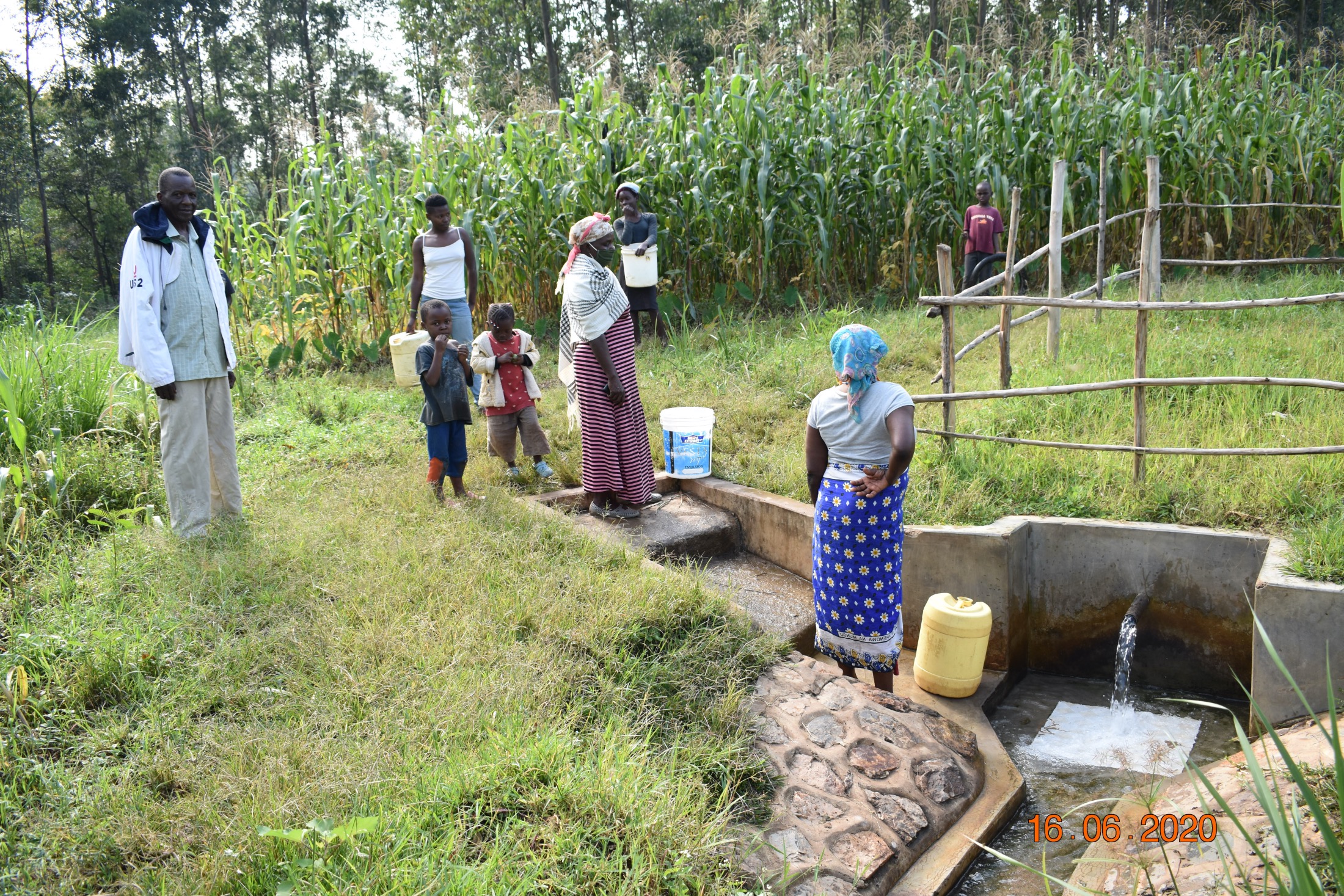
Margaret (right) takes advantage of her short trips to the spring to talk with others while wearing a mask and observing social distancing.
Many community members here said they do not wish for schools to reopen just yet for fear of their children contracting the virus. Right now, Kenyan schools are scheduled to reopen in September, providing they can pass a checklist of prevention measures required by the Ministry of Health.
So for now, Margaret’s 3 children who are supposed to be in school during this period are stuck at home all day. That means a lot more breakfasts, snacks, and lunches that would have otherwise been provided by the school. You can see how much Margaret’s crops and stores have been depleted already because of how much her children require on a daily basis, our team noted.
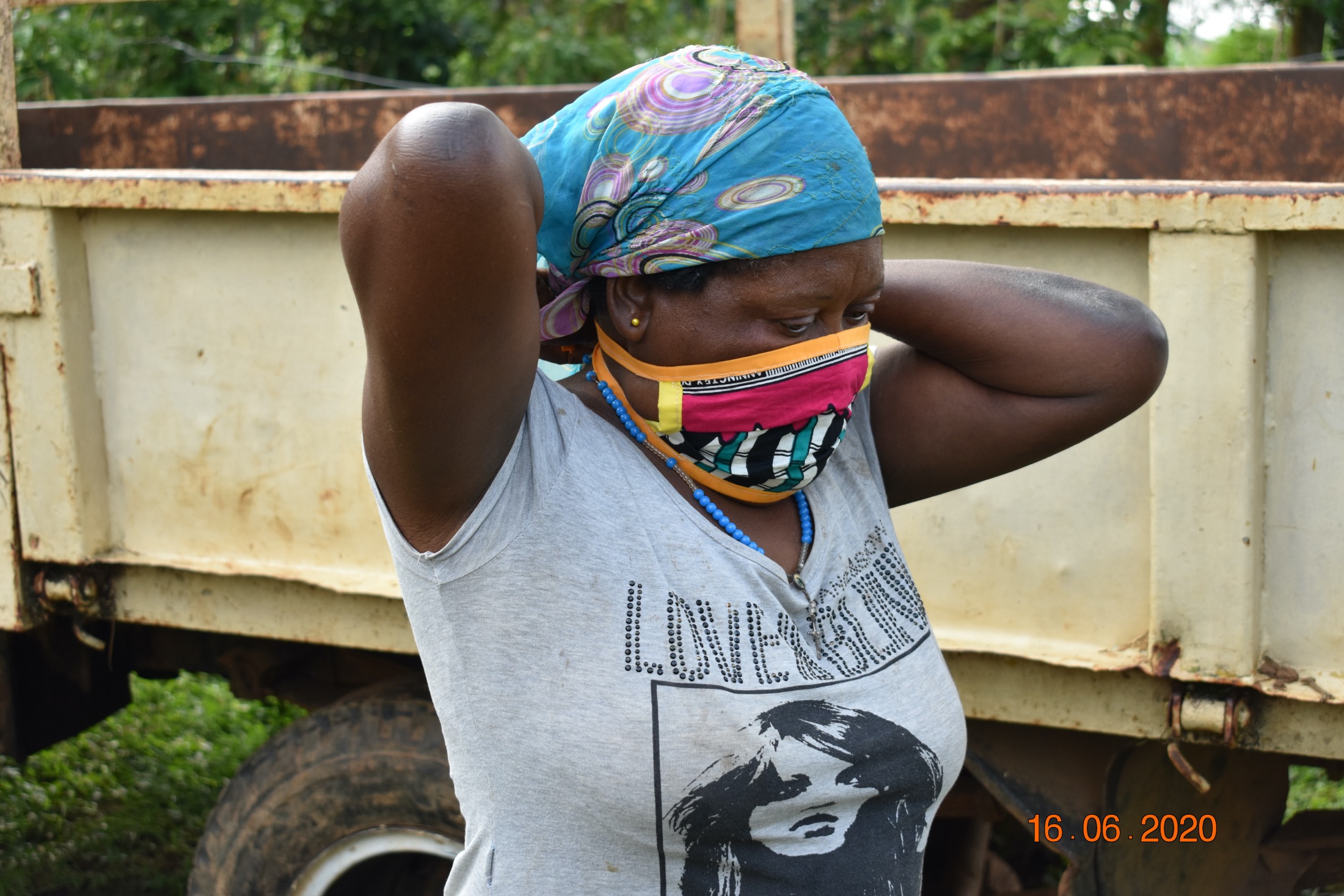
Margaret puts on her face mask
Margaret and her fellow community members in Sichinji are not giving up in the fight against COVID-19. The community has embraced the rules enforced by the government about wearing masks, observing social distancing, handwashing with soap, and ensuring that they are not caught outside after curfew.
The national curfew has been a particular point of stress, followed by relief, for Margaret. She was so happy with the recent extension of the curfew from 7:00pm to 9:00pm. The curfew also ends an hour earlier in the morning, shifting from 5:00am to 4:00am.
The extension gives Margaret more time to do her work on the farm while relaxed without worries of the curfew. When asked what restriction she is most looking forward to being lifted next, she said “the reopening of the church”.
Thankfully, information about COVID-19 is spreading across all areas of Kenya thanks to the many forms of news. Margaret cited the radio, word of mouth, television, and our own team’s training in her community as her main sources of information about the disease.
“Training helped me see the need for washing of the hands more frequently and setting the handwashing station at the entrance of the home. Also, it helped me see the sense of wearing masks whenever I go out of my home.”
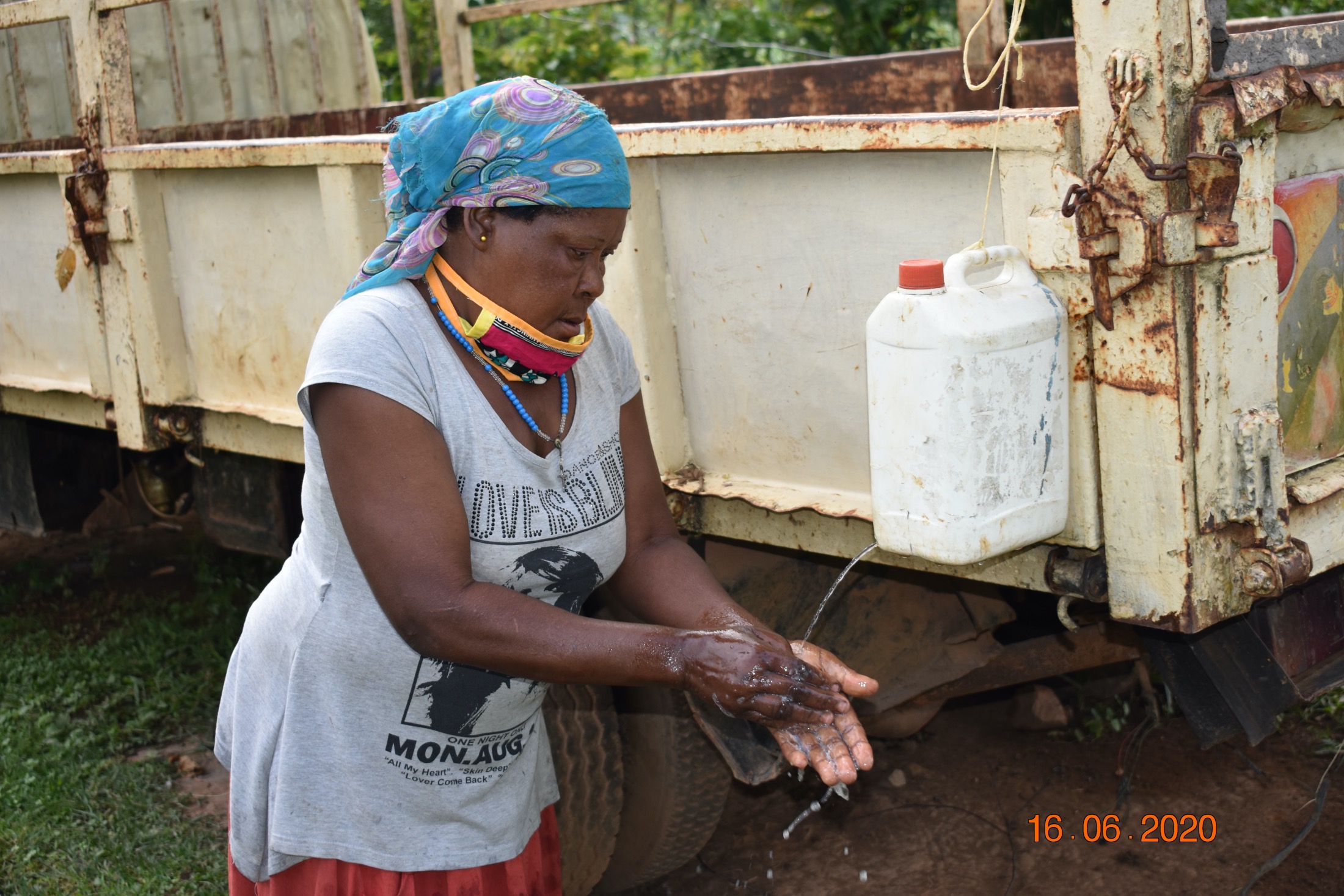
Margaret washes her hands using a leaky tin station and soap at home
Tweet